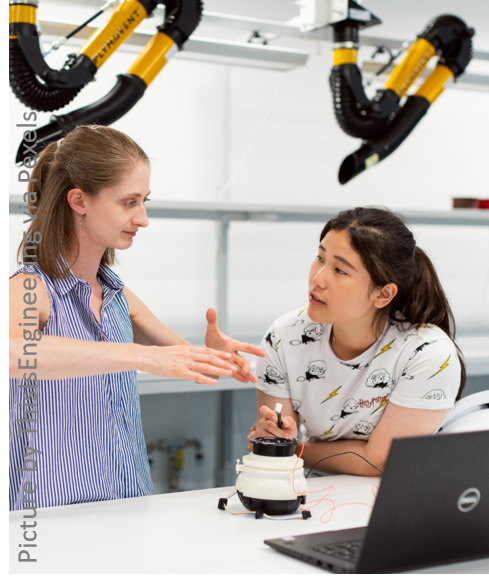Register for GEMnet’s 1-hour-talk on April 28, 2023, 12 p.m. CET; online
“ Critical Synthesis of Studies on Gender Matters in Science Education from 2014 until 2022.”
Around half of Europe’s population is female, but only 15% work in tech sectors (2,4% in ICT related fields) and only around 20% are entrepreneurs. The untapped source of female technology, innovation and entrepreneurial potential leaves Europe with a huge and growing gender and skills gap in these sectors. Education certainly is the most important lever to enable and encourage girls to pursue studies and careers linked to STEM, particularly ICT, and entrepreneurship.
In this talk, Lucy Avraamodou will offer a critical synthesis of studies on gender matters in science education from 2014 until 2022.
The talk is organized around 3 research areas:
- understanding gender gaps and gender stereotypes in science,
- gender performativity and identity-based approaches to gender explorations,
- intersectional approaches and queer theories in science.
In doing so, the existing knowledge will be summarized and the gaps in the knowledge base will be identified. Further more, s set of recommendations for future research directions in science education with a focus on gender will be provided.
This time’s one hour for girls in STEM is led by Prof. Dr. Lucy Avraamidou
Lucy Avraamidou is the Director of the Center for Learning and Teaching and the Head of the Institute for Science Education and Communication at the University of Groningen in the Netherlands.
She received her PhD in Science Education from the Pennsylvania State University in the USA. Upon its completion, she worked as a Research Associate at the Center of Informal Learning and Schools at King’s College London and the University of Nicosia in Cyprus.
Her research is associated with theoretical and empirical explorations of what it means to widen and diversify STEM participation in school and out-of-school settings through the lens of intersectionality. At the heart of the account of my work is an exploration of underrepresented groups’ identity trajectories and negotiations with the use of narrative and life-history methods.



